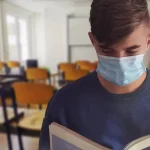As Poslovni Dnevnik writes on the 30th of April, 2020, the Croatian Institute of Public Health has prepared ten pages of draft guidelines on its official website for the prevention and suppression of the coronavirus epidemic for early years education and pre-school institutions, as well as primary schools providing care for the children in attendance.
Children with chronic diseases or those who are in contact with chronic patients:
The Croatian Institute of Public Health recommends that children and staff with chronic illnesses (respiratory, cardiovascular, diabetes, malignancies, immunodeficiency, children with major physical/motor impairments) remain at home, as well as children whose parents/guardians or household members have one of the aforementioned issues.
If a staff member has one of the aforementioned illnesses or are over 65 years of age, they shall, during their stay at home, observe the measures of physical distance in their households.
Stay home when possible:
It has been stated that the Croatian Institute of Public Health recommends children who can be cared for at home remain at home, since the number of children in kindergartens and schools may be such that the physical distance measures required fail to be properly adhered to and respected. As distance learning will continue to be maintained, the Croatian Institue of Public Health has stated that it encourages the continued education of children from home in all situations where it remains possible.
Physical distance of two metres:
It is necessary to organise the work of the institutions at hand in such a way that social distancing measures continue to be respected (physical distance) as well as the measures regarding enhanced personal hygiene. The physical distance of at least two metres indoors needs to be maintained by employees, and it is recommended that physical distance be maintained whenever possible between employees and children unless a child requires special care.
When using a common area, staff need to maintain a physical distance of two metres between each other, and staff meetings and the like should take place via e-communication or by telephone, and the entry of parents should be avoided whenever possible.
Only children and a teacher from the same educational group may stay in the same room together at the same time. Physical distance as well as the enhanced personal hygiene of children should be encouraged, but it should be expected that during the implementation, certain deviations will inevitably occur due to the developmental characteristics of certain age groups, characterised by:
– The exploration of spaces and objects that surround the child (at certain ages, kids will continually put their hands and foreign objects inside their mouths),
– Curiosity towards other persons / other children,
– The misunderstanding of instructions,
– The disregard for the instructions,
– Restlessness and the need to move around freely,
The organisation of work with children:
It is necessary to organise the stay of children in Croatian kindergartens and schools as follows:
– Groups of children in fewer numbers, the same children (preferably up to 9 children in a group and one teacher / teacher giving a total of 10 people as a total) – after forming a group of children, 14 days from the beginning of application of these instructions including non-working days, no new children are admitted to the group),
– One group of children should be taken care of by one teacher, or two in the case of an extended stay at school or during the afternoon shift in kindergarten, without any “overlap”,
– Physical contact (close contact) between children from one educational group with other children, parents/guardians of other children and staff members must be avoided,
– Each group of children needs to remain in one suitable room,
– The teacher should spend as much time outdoors as possible with the children,
– Children’s dining tables and school desks need to be spaced apart so that the children sit at a distance of two metres and each child should always be sitting in the same place,
The proper organisation of space – The recommended features of a room in which a group of children are staying (a classroom or other appropriate space, such as a gym):
– The room should be as large as possible and be airy and sunny (with an adequate natural daylight source),
– The room needs to be separated from any other room occupied by other groups of children by a door,
– The room needs to be well ventilated with fresh (not recycled) air from outdoors
– In the immediate vicinity of the room, there needs to be a toilet which is used exclusively by that group of children,
– It is necessary to arrange for the children to eat in that same room (meals can be delivered to the room and then consumed in that room), in such a way that the person bringing the food leaves food on a tray in front of the entrance to the classroom and the teacher brings the food into the room in for the children, the food must be pre-divided into portions,
– The room must have direct access to a larger terrace, balcony or, if possible, an outdoor yard,
– Any other person’s entry (such as cleaning staff, janitors or those bringing food) into the room must be avoided as long as the children are in the room,
– Passage through common areas should be avoided and minimised, and if necessary, passage through common areas shall be organised in such a way that children and the teacher from the same group pass at the same time, while other persons don’t pass at the same time, all while encouraging children not to touch any surfaces or objects in such passageways,
These instructions, among other things, relate to entering, exiting and carrying out classes in school facilities, as well as handing over children and dealing with school equipment, all of which can be found on the Croatian Institute of Public Health’s official website.
Make sure to follow our dedicated section for more on coronavirus in Croatia and the Croatian Institute of Public Health.









